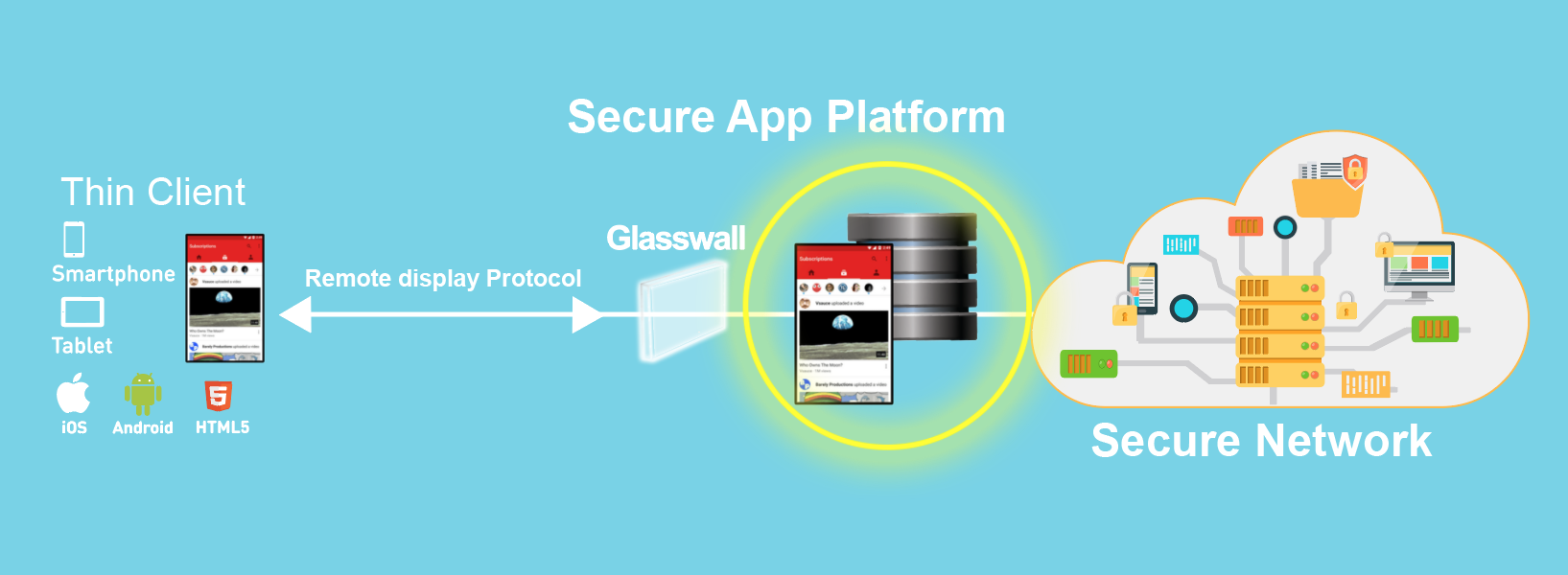It is not a secret that Firewalls have been securing networks for many years and they are surely here to stay. However, the increase in cyber security threats and attacks, as well as the growing impact of such attacks, force us to find more creative ways to protect our vulnerable networks.
Introducing the new kid on the block – Glasswall.
Glasswall protection actually secures isolated networks. Instead of just adding a policy concerning the app and user, who can enter or exit the network, we can allow information to pass through, but only as an image display.
So, what Glasswall actually does, is using display protocols to deliver apps. This is a well-known mechanism of accessing remote apps. However, now the use case is for security. By using display protocol, only the user interface can be transferred between networks and no other data can be leaked, including malware and sensitive data.
How does Glasswall dramatically increase the security level?
Every security expert knows that the first and most basic rule is to keep the attack surface, as small as possible. Glasswall can greatly help you do that.
Without Glasswall, every time you introduce a new app or a new connection to your network, you enlarge the attack surface. Every open port in your firewall places a new threat, and even any message type in a network connection, is a potential risk.
When apps are available only through remote display protocol, no matter how many apps you add, you don’t need to add more protocols or open any ports or services in your network. In that case, the attack surface size does not depend on the number of apps you allow access to.
How do Glasswalls work in real life?
In IT environments, Glasswall means that your apps are actually running in a remote app server, inside a secure datacenter and can be easily accessed by a thin client app. It’s almost like VDI or a remote desktop solution, but with much greater emphasis on information security. The thin client must work with an encrypted, secure and multi-factor authentication connection.
Nubo, as a pioneer in VMI security solutions, does just that for mobile apps. Users install a thin client app in their mobile devices, which accesses apps that are actually running remotely in the Nubo secure platform. Nubo’s patented protocol – UX over IP, acts as the Glasswall that protects the organization from external threats. The protocol is not only a mobile-designed remote protocol, but also designated for high levels of security.










